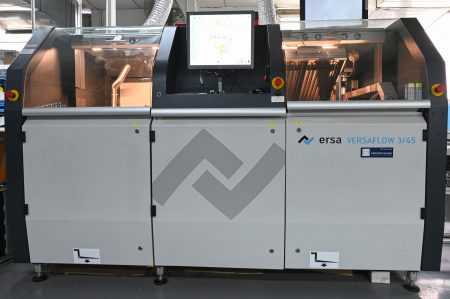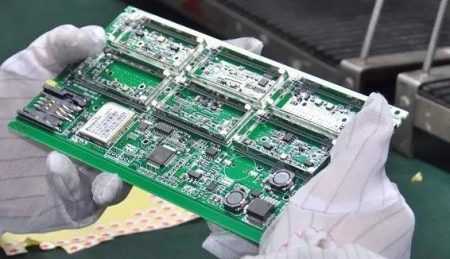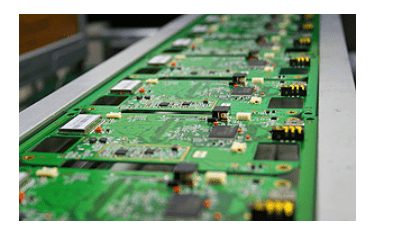- +86-755-23012705
- Building 3, Jinfeng Industrial Park, Fuyong Street, Baoan District, Shenzhen ,China
- [email protected]
As the calendar year comes to a close, industries across the globe face a surge in demand, and the electronics sector is no exception. For Chinese PCB (Printed Circuit Board) manufacturers, this period is often marked by increased orders for PCBA (Printed Circuit Board Assembly) and SMT (Surface-Mount Technology) services. Meeting these demands while maintaining quality, efficiency, and timely delivery can be challenging, especially given the complexity of modern electronics.
In this blog, we will explore how Chinese PCB manufacturers optimize their production processes to handle the heightened demand during the year-end rush. From improving production efficiency to managing supply chains, we’ll dive into the strategies and technologies that enable manufacturers to stay competitive and meet customer expectations during this peak season.
The year-end surge is typically driven by the need to stock up for the holiday season. Electronics manufacturers, particularly those in consumer devices such as smartphones, wearables, and gaming consoles, require a steady flow of high-quality printed circuit boards. For PCB manufacturers, this surge in orders comes with the challenge of producing large volumes of boards on tight deadlines, while ensuring that the final products meet rigorous quality standards.
Additionally, the complexity of PCBA and SMT increases as consumer electronics become more sophisticated. Modern devices often require multi-layer boards, advanced packaging, and miniaturized components, which puts further pressure on manufacturers to deliver top-quality products quickly.

One of the most significant ways Chinese PCB manufacturers optimize production is by investing in advanced manufacturing technologies. Automation and Industry 4.0 technologies are at the forefront of these efforts, helping manufacturers streamline their processes, reduce errors, and increase throughput.
Automated Assembly Lines: High-speed automated pick-and-place machines, used in the SMT process, are key to meeting the high volume demands during peak seasons. These machines can place thousands of components per hour with incredible precision, reducing human error and improving production speed. SMT machines can handle a wide variety of components, from standard resistors and capacitors to smaller, more complex parts like BGAs (Ball Grid Arrays), which are commonly found in modern electronics.
Robotics and AI: Robotic arms and AI-driven systems are also becoming more prevalent in PCB production. These technologies help with tasks such as material handling, PCB testing, and quality inspection, freeing up human resources for more complex tasks while ensuring consistent quality.
Automated Optical Inspection (AOI) and X-ray Inspection: To maintain high-quality standards, automated inspection systems are essential. AOI machines use cameras to inspect PCBs for defects like soldering errors, missing components, or incorrect placements. For deeper inspections, especially of hidden solder joints or complex assemblies, X-ray inspection is used to ensure that all components are correctly placed and soldered.
Efficient production scheduling is crucial for managing the increased demand during the year-end rush. Manufacturers must balance multiple factors, such as the complexity of the boards, the availability of raw materials, labor availability, and tight delivery deadlines.
Advanced Planning and Scheduling (APS) systems are commonly used to optimize workflows and allocate resources effectively. These systems help manufacturers create production schedules that maximize machine uptime, avoid bottlenecks, and ensure that customer orders are prioritized based on urgency and complexity.
Flexible Scheduling: Many PCB manufacturers implement flexible work shifts or overtime during peak seasons. By increasing shift frequencies or extending working hours, they can ensure that production lines operate at full capacity without the risk of missing deadlines. Some companies even implement “just-in-time” scheduling to align material procurement and production in real-time, reducing lead times and increasing overall efficiency.
During peak seasons, ensuring a steady supply of materials is a critical component of meeting demand. Chinese PCB manufacturers face the dual challenge of material shortages and increased shipping times due to the global logistics bottlenecks that often occur at the end of the year.
Strategic Supplier Relationships: To mitigate the risks of supply chain disruptions, many PCB manufacturers in China form long-term relationships with key suppliers. Early procurement of raw materials and components, including copper, resin, solder paste, and specialized components, helps ensure that they have the necessary materials to meet production goals.
Diversified Supplier Network: In response to the uncertainty caused by international supply chain disruptions, some manufacturers are diversifying their supplier base. By sourcing materials from multiple suppliers, both local and international, manufacturers can avoid delays and cost increases caused by over-reliance on a single source.
Inventory Management: PCB manufacturers often maintain buffer stock of critical materials during the peak season. This strategic inventory management helps prevent stockouts and allows manufacturers to continue production without waiting for backordered materials. Just-in-case inventory strategies are particularly effective during the final months of the year, when demand spikes.
The heightened demand during the year-end period does not diminish the importance of quality control. In fact, it makes maintaining high-quality standards even more crucial. Defects in PCBA and SMT can lead to product recalls, delays, and increased costs—issues that no manufacturer can afford during peak season.
Rigorous Testing Protocols: Manufacturers often implement a combination of in-line testing and post-production quality control processes to ensure that the products meet stringent quality standards. These tests can include functional testing (to ensure the PCBA works as expected), as well as mechanical tests (to assess durability and resistance to environmental factors).
Traceability: Modern PCB manufacturers also employ traceability systems that track every component of the board, from raw materials to the final assembly. This system allows manufacturers to quickly identify and resolve any quality issues, ensuring that only fully functional PCBs and PCBA products are shipped to customers.
Lean Manufacturing Principles: By adopting lean manufacturing techniques, Chinese PCB manufacturers can identify and eliminate wasteful processes that may slow down production. This approach improves efficiency and helps maintain consistent quality throughout the manufacturing process, even during peak demand periods.

A skilled workforce is essential for maintaining quality and efficiency during peak production times. Many Chinese PCB manufacturers invest in ongoing training and development programs for their employees, ensuring that they are well-versed in the latest technologies and production processes.
Labor Flexibility: To deal with labor shortages or increased demand for skilled workers, many manufacturers hire temporary or contract workers during the peak season. They also offer overtime pay or bonuses to incentivize existing employees to work longer hours. This flexible workforce model ensures that production can scale to meet demand without compromising on quality or timelines.
Clear communication with customers is vital to ensure that expectations are managed during the year-end rush. PCB manufacturers typically work closely with clients to get a detailed understanding of their requirements, timelines, and any potential challenges.
Real-Time Updates: Many PCB manufacturers use advanced enterprise resource planning (ERP) systems to provide real-time updates to customers about order status, production progress, and potential delays. This transparency helps manage customer expectations and allows for proactive problem-solving if issues arise.

The year-end rush is a critical period for PCB manufacturers, especially those in China, as they work to meet increased demand for PCBA and SMT services. By leveraging advanced manufacturing technologies, optimizing production schedules, strengthening supply chain management, ensuring rigorous quality control, and maintaining a skilled workforce, manufacturers can meet these challenges head-on. Through these strategies, Chinese PCB manufacturers not only ensure timely delivery during the peak season but also maintain the high standards of quality and efficiency required to stay competitive in the global market. As the demand for electronics continues to rise, these optimization strategies will be increasingly important for success during future peak seasons.
Take Your Projects to New Heights with XPCB Limited
XPCB Limited offers top-notch PCB manufacturing, quick-turnaround prototyping, and turnkey PCBA services designed to make your projects shine. Count on us to bring your ideas to life with efficiency and quality. Your success matters to us, and we’re here to make your innovation journey smooth and rewarding.






XPCB Limited is a premium PCB & PCBA manufacturer based in China.
We specialize in multilayer flexible circuits, rigid-flex PCB, HDI PCB, and Rogers PCB.
Quick-turn PCB prototyping is our specialty. Demanding project is our advantage.
Tel : +86-136-3163-3671
Fax : +86-755-2301 2705
Email : [email protected]
© 2024 - XPCB Limited All Right Reserve
